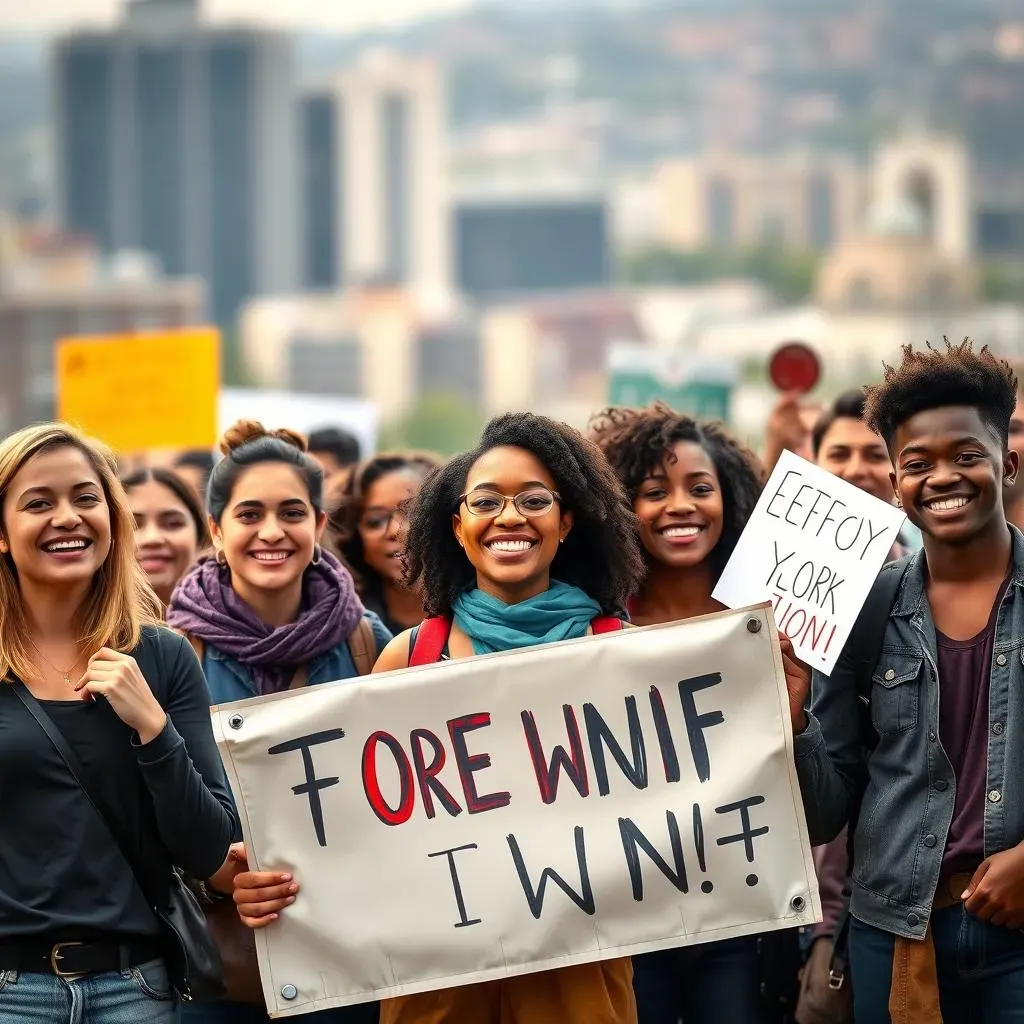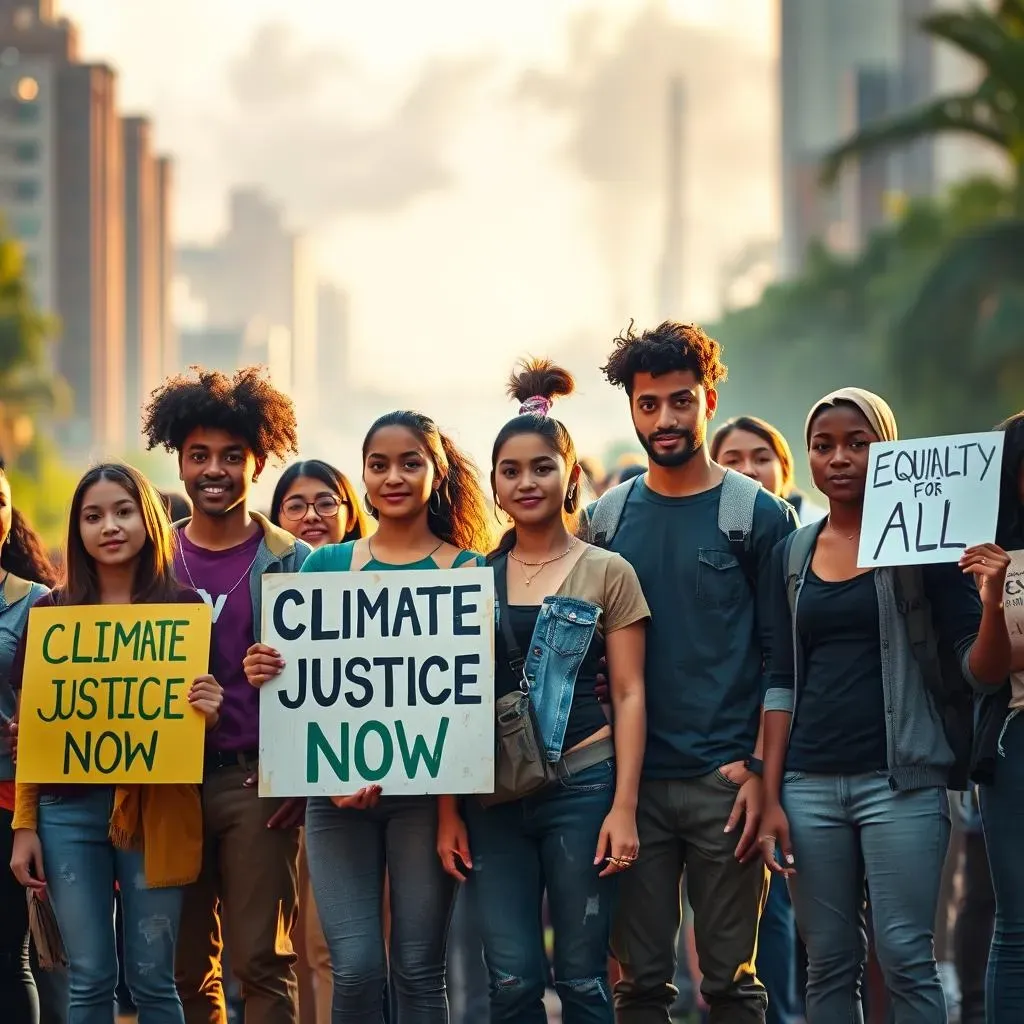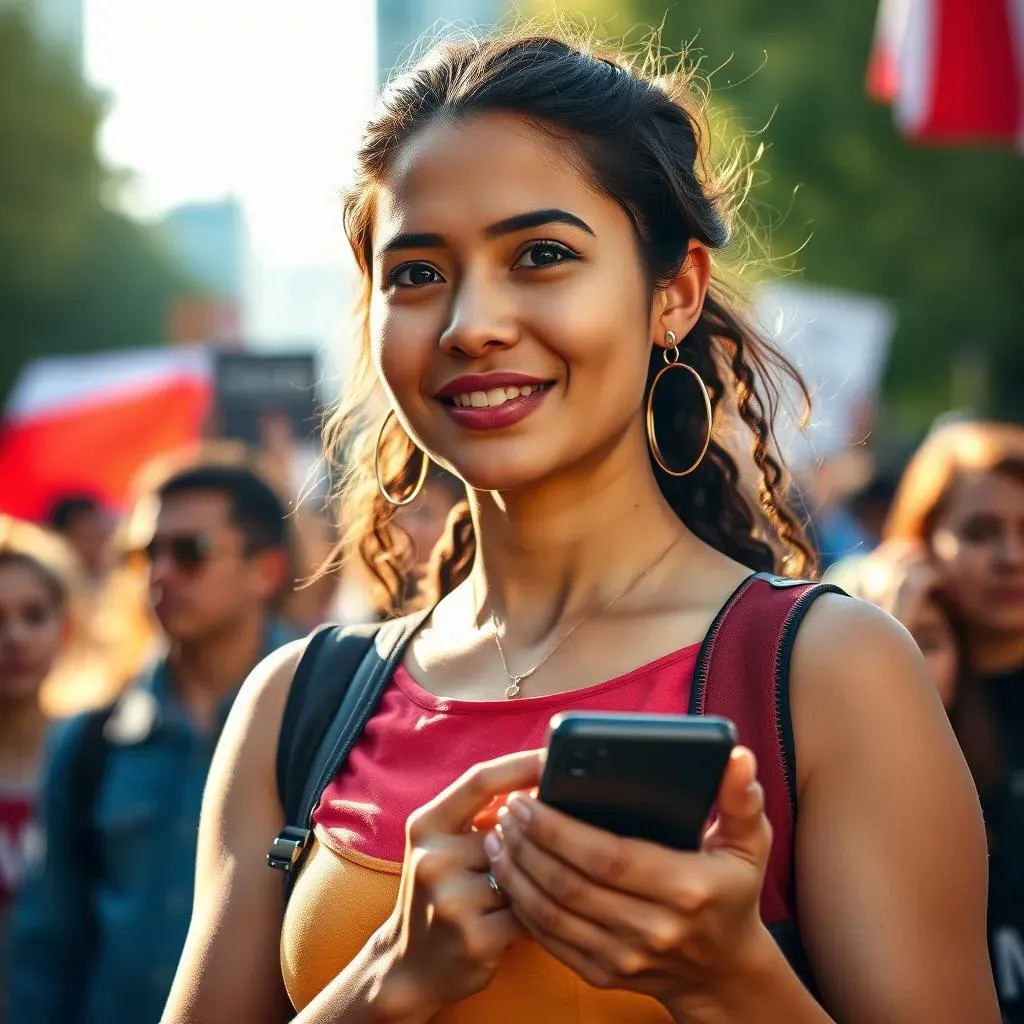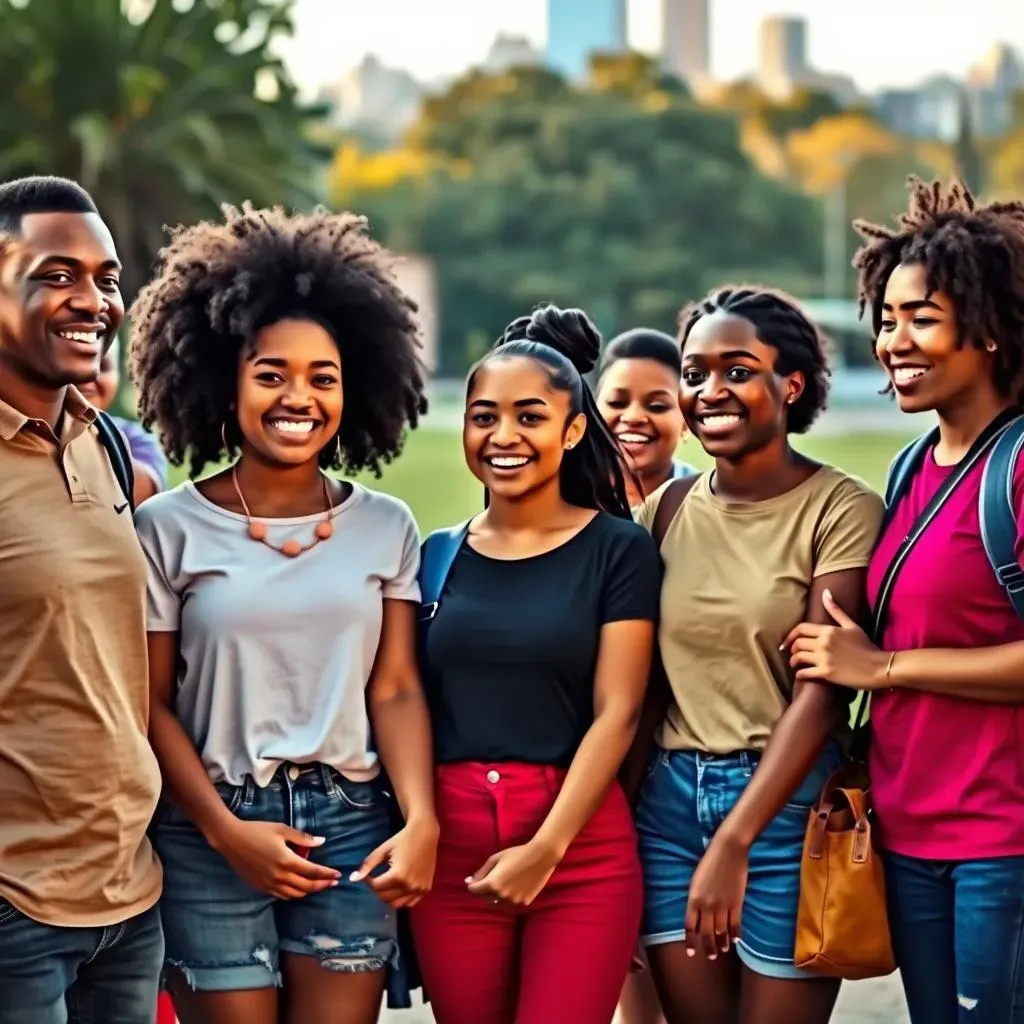Table of Contents
Ever feel like adults aren't listening? Well, you're not alone! Across the United States, a powerful wave of change is being led by young activists in the US. These aren't just kids with big ideas; they're the people pushing for real action on issues that matter most. From climate change to social justice, they're not waiting for permission to make a difference. This article will take you on a journey, exploring the incredible impact these young leaders are having. We’ll look at the driving forces behind their activism, the creative ways they're making their voices heard, and how you can get involved in supporting their efforts. Get ready to be inspired because the future isn't just coming, it's being shaped by these amazing young people, right now. We'll examine the key issues these young activists are tackling, how they're creating change, and ways you can support them. Let's see what they're up to!
The Rise of Young Activists in the US

The Rise of Young Activists in the US
A New Generation Finds Its Voice
It's not like young people just woke up one day and decided to change the world, though sometimes it feels that sudden. The truth is, there's a long history of youth involvement in social movements, but something feels different now. This isn't just about kids following in their parents' footsteps. This is a generation that has grown up with the internet, witnessing global crises unfold in real-time. They've seen the news, felt the anxieties, and realized that waiting for adults to fix things isn't cutting it. They are ready to make their own rules.
Think about it: they've seen school shootings, climate disasters, and massive social inequalities, all before they're old enough to vote. That kind of exposure can either shut you down or light a fire under you. And for many young people in the US, it's definitely the latter. They aren't just inheriting problems; they're inheriting a fighting spirit. They're using social media to organize, educate, and mobilize in ways that previous generations could only dream of. They're not waiting for permission; they're creating their own spaces for change.
From Marches to Movements
The rise of these young activists isn't just about individual actions, but about collective power. We're seeing a shift from isolated protests to organized movements. It's not just about a few passionate individuals anymore; it's about a network of young people supporting each other, sharing resources, and amplifying their voices together. They're not just marching; they're building communities. And they're using every tool at their disposal, from TikTok to town halls, to make sure their message is heard.
A Diverse Landscape of Activism
It's important to remember that this isn't a single, unified movement, either. Young activists in the US come from all walks of life, tackling a wide range of issues. Some are focused on environmental justice, fighting for a sustainable future. Others are leading the charge for racial equality, demanding an end to systemic injustice. And still others are advocating for LGBTQ+ rights, mental health awareness, and gun control. This diversity is a strength, reflecting the complex realities of the world they live in. It means that there’s a place for everyone in this movement, no matter what issue they care about most.
Key Issues Driving Young Activists

Key Issues Driving Young Activists
Climate Change: A Planet in Peril
Let's be real, climate change isn't some far-off threat; it's the backdrop of young people's lives. They see the extreme weather, the rising sea levels, and the melting glaciers, and they're not happy about it. This isn't just about polar bears anymore; it's about their future. Many young activists are taking to the streets, demanding that governments and corporations take responsibility for their part in the crisis. They're not just protesting; they're pushing for systemic change, for renewable energy, and for a world where their future isn't compromised by the mistakes of previous generations. They're not asking nicely; they're demanding action.
It's not just about the big picture either; they're seeing the impact of climate change on their communities. From polluted air to contaminated water, these issues are hitting close to home. They're not just fighting for a healthy planet; they’re fighting for their own health and safety. This is personal for them, and that's why they're so passionate. It’s not enough to recycle; they're demanding a radical shift in how we produce and consume, and they're leading the charge for a more sustainable world.
Social Justice: Equality for All
Beyond environmental concerns, there's a deep-seated desire for social justice driving many young activists. They've grown up in a world where inequality is often the norm. They've witnessed police brutality, racial discrimination, and systemic oppression, and they're not willing to accept it. These young activists are demanding an end to systemic racism and are pushing for policies that promote equality and justice for all. They're not just talking about it; they're organizing protests, educating their communities, and creating spaces where everyone feels seen and valued.
It's not just about race, either; they're fighting for LGBTQ+ rights, gender equality, and disability rights. They're recognizing that these issues are interconnected and that true justice means liberation for everyone. They're challenging traditional power structures and are advocating for a world where everyone has the opportunity to thrive. It's not enough to be tolerant; they're demanding a world where everyone is celebrated for who they are, and they're not backing down until they see real change.
Issue | Why It Matters to Young Activists |
|---|---|
Climate Change | Direct impact on their future, environmental justice, extreme weather events |
Racial Inequality | Systemic oppression, police brutality, need for equal opportunity |
LGBTQ+ Rights | Discrimination, need for acceptance and legal protection |
Gun Violence | School shootings, community safety, demand for stricter gun control |
How Young Activists Make a Difference

How Young Activists Make a Difference
Amplifying Voices Through Social Media
Forget megaphones; today's young activists wield smartphones. They are masters of social media, turning platforms like Instagram, TikTok, and Twitter into powerful tools for change. They're not just posting selfies; they're creating viral campaigns, sharing information, and organizing protests with a few taps. Think about how quickly information can spread online; it's like having a global megaphone at your fingertips. They are using this reach to educate their peers, challenge misinformation, and build a sense of community among those who share their concerns. It’s not just about likes and shares; it’s about creating real-world impact.
They're also using these platforms to hold leaders accountable, calling out injustices and demanding transparency. They're not waiting for the news to cover their stories; they're creating their own media, controlling their narrative, and ensuring their voices are heard directly. They're not just consumers of information; they're active participants in shaping public discourse. And they're doing it with creativity, passion, and a healthy dose of snark. They are literally changing the way we communicate about social issues.
Organizing Grassroots Movements
Beyond the digital world, young activists are also incredibly effective at organizing real-world movements. They're not just sitting behind screens; they're hitting the streets, mobilizing their communities, and creating change from the ground up. They're organizing marches, protests, and sit-ins, making sure their voices are heard loud and clear. They're not afraid to disrupt the status quo, challenging those in power and demanding accountability. They're not just talking about change; they're actively creating it.
These movements aren't just about showing up on the day of a protest, either; they're about building sustained campaigns, developing leadership skills, and creating a network of support that can push for change over the long term. They're not just reacting to injustice; they're proactively creating solutions. They're not just protesting; they're building a better world, one community at a time. And they're doing it with a level of energy and commitment that's truly inspiring.
Engaging in Policy and Advocacy
Young activists aren't just about protests and social media; they're also deeply engaged in policy and advocacy. They understand that real change often requires working within the system, and they're not afraid to get their hands dirty. They're meeting with elected officials, testifying at hearings, and working to pass laws that reflect their values. They're not just complaining about problems; they're offering solutions and working to make them a reality. They're not just waiting for adults to act; they're leading the way.
They're not just focusing on national politics, either; they're also working at the local level, organizing voter registration drives, and running for office themselves. They understand that change happens at every level, and they're committed to creating a more just and equitable society from the ground up. They're not just talking about democracy; they're actively participating in it. They're not just dreaming of a better future; they're building it, one law, one election, one community at a time.
Method | How They Use It |
|---|---|
Social Media | Viral campaigns, information sharing, organizing protests, holding leaders accountable |
Grassroots Organizing | Marches, protests, community mobilization, creating local movements |
Policy and Advocacy | Meeting with officials, testifying at hearings, supporting legislation, running for office |
Supporting and Empowering Young Activists in the US

Supporting and Empowering Young Activists in the US
Listen Up: The Power of Adult Allies
Okay, so you're not a teenager anymore, but that doesn't mean you can't be a part of this movement. One of the most powerful things adults can do is simply listen to what young activists have to say. It's not about telling them what to do or how to do it; it's about creating space for their voices to be heard. They've got the passion, the energy, and the ideas; what they need is our support. It's about recognizing their expertise on the issues that directly impact their lives and giving them the platform to share their perspectives. This means attending their rallies, amplifying their messages on social media, and actively seeking out their opinions. It's not about taking over; it's about stepping back and letting them lead.
Think of it like this: they're the drivers, and we're the navigators, providing guidance and support when needed, but letting them chart their own course. It's about creating a partnership, not a hierarchy. It's about recognizing that they are the future leaders, and our job is to help them get there. And sometimes, the best way to help is to simply get out of the way and let them shine. It’s not about us anymore, it’s about them.
Resources and Opportunities: Fueling the Fire
Beyond just listening, young activists need access to resources and opportunities to be effective. This means providing financial support for their organizations, offering mentorship and training in leadership and advocacy, and creating spaces where they can collaborate and connect with each other. It's about investing in their potential, recognizing that they're not just the activists of today, but the leaders of tomorrow. It’s about giving them the tools they need to succeed and the support they need to thrive. This could involve donating to youth-led organizations, volunteering your time and expertise, or simply sharing information about scholarships and grants.
It's also crucial to create opportunities for young activists to engage with policymakers and community leaders. This means facilitating meetings, organizing town halls, and ensuring their voices are heard at the highest levels. They need a seat at the table, and it's our responsibility to help them get there. It’s about opening doors and breaking down barriers, creating a pathway for them to not just participate in the system but to transform it from within. It’s not just about giving them a voice; it’s about giving them the power to make a difference.
Creating Safe and Inclusive Spaces
Finally, it’s important to create safe and inclusive spaces where young activists can feel supported and empowered. This means challenging discriminatory practices, promoting diversity and inclusion, and creating a culture of respect and understanding. It’s about recognizing that activism can be challenging, and young activists need a supportive community to lean on. This means creating spaces where they can share their experiences, process their emotions, and build relationships with each other. They need to know that they're not alone in this fight and that there are people who care about them and their well-being.
It's also important to recognize that young activists come from all walks of life, and their experiences shape their activism in unique ways. This means creating spaces that are accessible to everyone, regardless of their background or identity. It's about ensuring that everyone feels welcome, valued, and respected. It’s not just about creating a movement; it’s about creating a community. And it’s about creating a world where every young person has the opportunity to thrive and reach their full potential. It's not just about activism; it's about creating a better world for everyone.
Action | How It Helps |
|---|---|
Listening | Validates their experiences, amplifies their voices, shows respect |
Providing Resources | Offers financial support, mentorship, training, tools for success |
Creating Safe Spaces | Builds community, promotes inclusivity, fosters a culture of respect |